TIANTAI offers a 10,000KL-2,000,000KL per year industrial brewery equipment turnkey solution, designed for large-scale beer production with high efficiency and stability. Our industrial beer equipment covers the entire brewing process, including malt storage system, grain milling system, brewhouse, fermentation, BBT storage, packaging, air system etc. Whether you're expanding or building a new brewery, TIANTAI provides commercial beer equipment one-stop turnkey solution tailored to your needs.
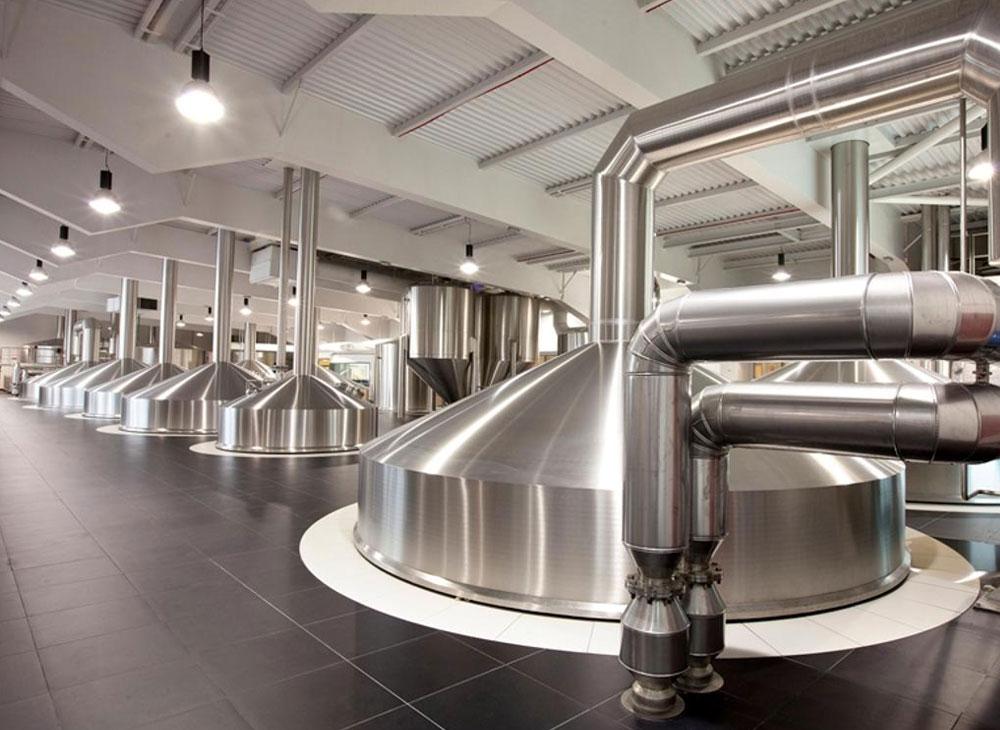
Brewery Silo Storage System
In a brewery, the main grain ingredients include malted barley, malted wheat, and rice flour etc. These raw materials can be stored and supplied using either flat warehouses or vertical silos. Flat warehouses are mainly for bagged materials and are suitable for breweries with smaller storage needs. In contrast, silos are better for bulk storage and can hold larger quantities. Typically, a brewery needs to store enough malt and other ingredients for 10-30 days of production. A silo storage system not only meets this demand but also enables automatic material supply, reducing labor costs.Malt milling System
The malt milling system uses a wet milling process. First, the malt is processed to remove stones and iron particles, which could affect the normal operation of the equipment. Then, it is mixed with 50°C mash water and soaked for 15-20 minutes to achieve a moisture content of 30%. After soaking, the malt enters a roller crusher for milling. During the milling process, mash water is added to adjust the consistency. Wet milling is ideal for large-volume, continuous production brewing systems.Brewhouse System
The Brewhouse System is one of the most critical components of beer production equipment. The design of the brewhouse system must align with the mashing process to ensure the quality of the wort. The quality of the wort, in turn, affects the fermentation, lautering performance, and final taste of the beer. The mashing process includes essential steps such as mashing, wort lautering, boiling, whirlpool, wort cooling etc.Fermentation System
Fermentation is a critical process in beer production, involving complex biochemical reactions with yeast. Typically, cylindrical conical fermenters (CCFs) are used, both indoor and outdoor, with an automatic cooling system that allows precise temperature control during fermentation. The conical bottom design facilitates yeast recovery, and the system is equipped with CIP cleaning devices for thorough and efficient cleaning and sterilization, ensuring hygiene and safety throughout the production process.The fermentation system is configured based on the beer variety, fermentation cycle, yield distribution, and brewing batches. This ensures a customized solution for each brewery’s needs.
Yeast Propagation System
The Yeast Propagation System is designed to enhance the yeast production process in breweries. It allows breweries to independently propagate pure yeast strains, ensuring the stability and quality of beer. This system is particularly beneficial for larger breweries with specialized teams and experimental equipment. The process begins with laboratory-scale cultivation, followed by yeast propagation in Carlsberg tanks and Hansen tanks. The yeast is then stored in yeast storage tanks and ultimately used in the beer fermentation tanks. This system ensures better control over yeast quality, resulting in consistently high-quality beer.Filtration System
The candle-type DE filtration system is one of the most commonly used filtration methods in beer production. The system primarily consists of a candle-type filter, with several supporting components, such as pre- and post-buffer tanks, DE mixing tanks, head and tail beer tanks, along with corresponding pipes, valves, and sensors. The candle filter consists of several vertical filter candles, onto which DE (the filtration aid) is applied through a pre-coating process. After multiple pre-coating steps, the DE adheres to the outside of the filter candles. The mixing system continuously adds DE during the process. This pre-coating method effectively filters out yeast, cold-formed sediment, and other impurities, giving the beer a clearer and more refined appearance.Disc Centrifuge System
The disc centrifuge system is widely used in beer separation to effectively remove yeast from the beer, thereby enhancing the clarity and reducing yeast sedimentation. This technology is particularly beneficial for brewing wheat beer and other varieties where clarity is essential. Centrifuge technology can also extend the shelf life of beer while maintaining its freshness. It is especially suitable for fresh beer in cold chain circulation and can be used alongside instantaneous sterilization to further prolong the beer’s shelf life. A high-quality centrifuge ensures that oxygen increase is kept below 5-10 ppb.Flash Pasteurizer System for Beer
Introduction to Flash Pasteurizer System:Flash pasteurization is used before filling to rapidly heat the beer for 35-40 seconds with high-temperature steam, achieving sterilization. After the heating process, the beer is quickly cooled to preserve its flavor and minimize the development of off-flavors. Flash pasteurization is commonly followed by a sterile filling process. This method is especially suitable for the production of fresh beer.
High Concentration Dilution System
In the beer market, light and refreshing beers are always popular. High concentration dilution technology is one of the key innovations for producing these types of beers. It ensures that the beer maintains its core flavor and stable body while avoiding issues such as bland taste, coarse foam, poor foam retention, reduced mouthfeel, color fading, poor body harmony, and reduced non-biological stability. This sets high demands on the design and manufacturing of dilution equipment. TIANTAI’s specially designed mixing structure and CO2 cutter ensure that the beer liquid is fully in contact with CO2 molecules, transitioning from laminar flow to turbulent flow, thus enhancing the solubility of beer, water, CO2, and additives. The mixer in the pipeline increases the mouthfeel strength during high dilution, ensuring the diluted beer meets the desired standards. This system is equipped with an accurate CO2 metering system, successfully controlling the CO2 content in the diluted finished beer, resolving CO2 instability issues.Control System
The automation system in a brewery is the most critical part of the modern beer brewing process. It encompasses the automation control system, monitoring system, and data analysis system.CIP Cleaning System
The CIP (Cleaning in Place) system is an essential piece of equipment in a brewery, especially considering the strict hygiene requirements for beer brewing. Even the smallest hygiene issues can result in contamination of an entire batch of beer. A well-designed CIP system is crucial for cleaning and sanitizing equipment such as tanks and pipes, ensuring sanitary conditions throughout the brewing process and maintaining consistent beer quality. In modern breweries, each production area is typically equipped with an independent CIP system. These include areas like the mashing section, wort to fermentation tank pipelines, yeast propagation section, beer clarification and filtration sections, and the filling section. Different sections may use varying cleaning processes.Glass Bottle Filling System
The Glass Bottle System is for filling beverages containing CO2 (such as sodas, beer, iced tea, etc.) into glass bottles and sealing them with crown caps. This system is equipped with a secondary vacuum system, and the beer tank is pressurized with CO2, which helps minimize the intake of O2 into the bottles. This ensures that the CO2 content not only remains intact but may actually increase during the filling process. Therefore, this system is particularly suitable for filling high-quality beer with a longer shelf life.CO2 Supply System Overview
In a brewery, liquid CO2 is commonly used, which is vaporized before being applied in various brewing processes. It plays an essential role in carbonation, beer transfer, oxygen removal in filtration, and replacement during the filling process.CO2 Recovery System Overview
CO2 is a crucial raw material in beer production, as it is both generated during the fermentation process and required in large quantities throughout the brewing stages. Efficient CO2 recovery and usage balance can significantly reduce energy consumption and lower production costs.Glycol water Supply System
Glycol water, made from a mixture of ethylene glycol and water in a 1:3 ratio, serves as the direct coolant in beer brewing systems. This mixture has a low freezing point and is not easily volatile. Glycol water is directly cooled by refrigeration equipment, and in brewing systems, it typically maintains a temperature between -3℃ and -5℃. This mild cooling prevents freezing and ensures temperature control. Glycol water is primarily used for cooling fermentation tanks, lager tanks, and cold water tanks. The Glycol water tank stores a certain amount of Glycol water to meet the needs of the production process and can also help save energy costs by utilizing off-peak electricity storage at night.Steam Supply System
The steam supply system plays a critical role in breweries, where steam is widely used for heating and sterilization purposes. Steam is essential in processes such as wort mashing, boiling, yeast propagation, instant sterilization, pasteurization, and pipeline sterilization. Steam offers high thermal efficiency, gentle heating that prevents material burn, and minimal heat loss during transfer. The fuel for steam boilers can be chosen based on local conditions and may include natural gas, LPG, electricity, diesel, or biomass as heating sources.Compressed Air Supply System
In a brewery, compressed air is primarily used to power various pneumatic components, as well as in processes such as the spent grain system. The compressed air only requires basic filtration to remove water and oil. Once purified, the air is also used in processes such as wort oxygenation and CO2 displacement in fermentation tanks.Brewing Water Supply System
Introduction to the Brewing Water Supply System:Brewing water is primarily used for various processes in brewing. It generally comes from regular water that has undergone water treatment. The quality of brewing water significantly impacts the brewing process, with certain ions influencing various aspects of production. For example, calcium, magnesium, and sodium ions affect the pH value, zinc is essential for yeast growth, and iron ions can inhibit the mashing process. Brewing water must meet the basic requirements for beer production, and adjustments can be made to the water quality based on the type of beer being brewed.
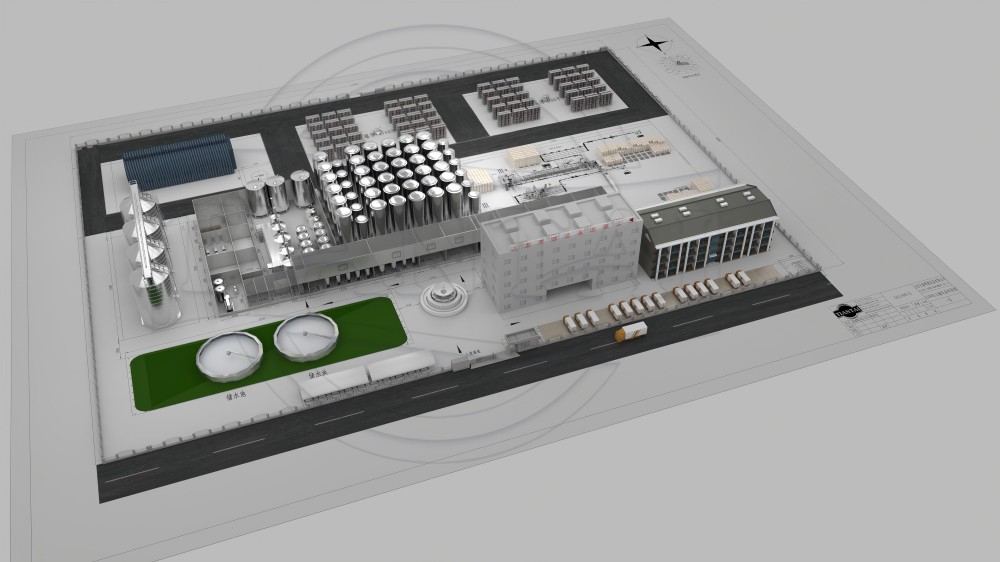
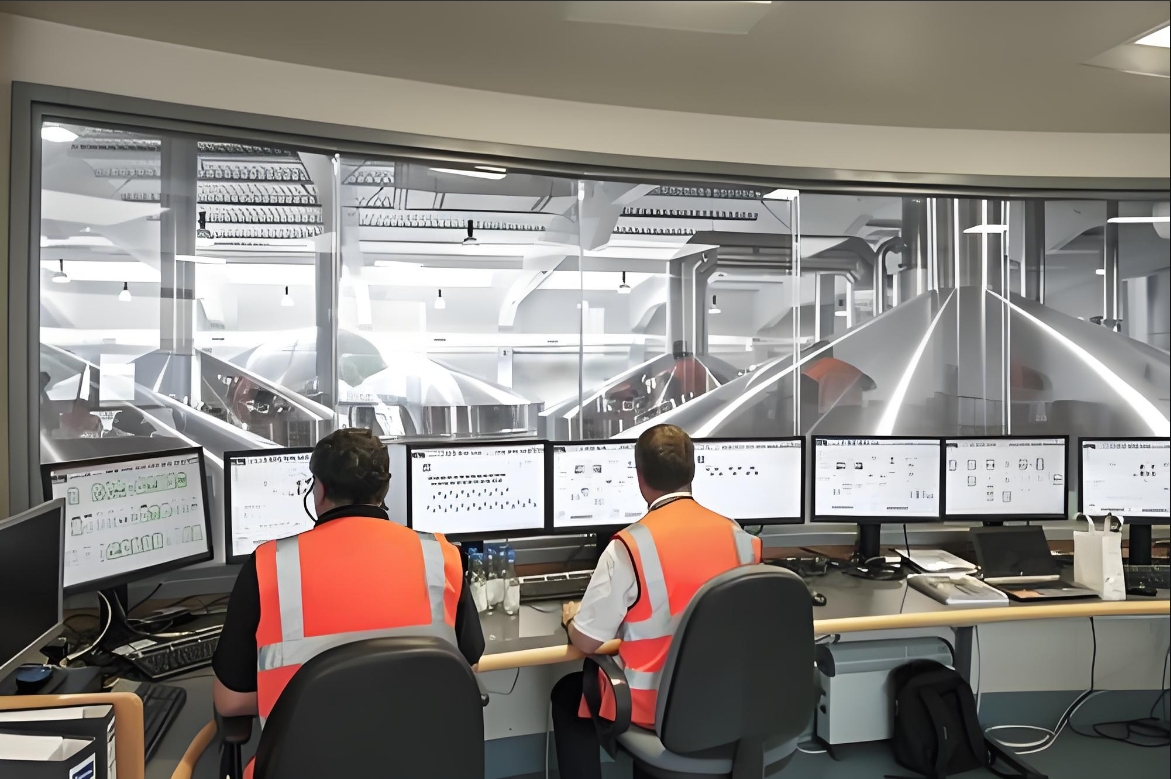
.jpg)
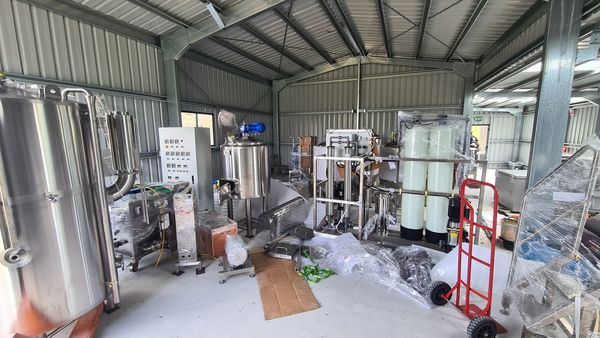
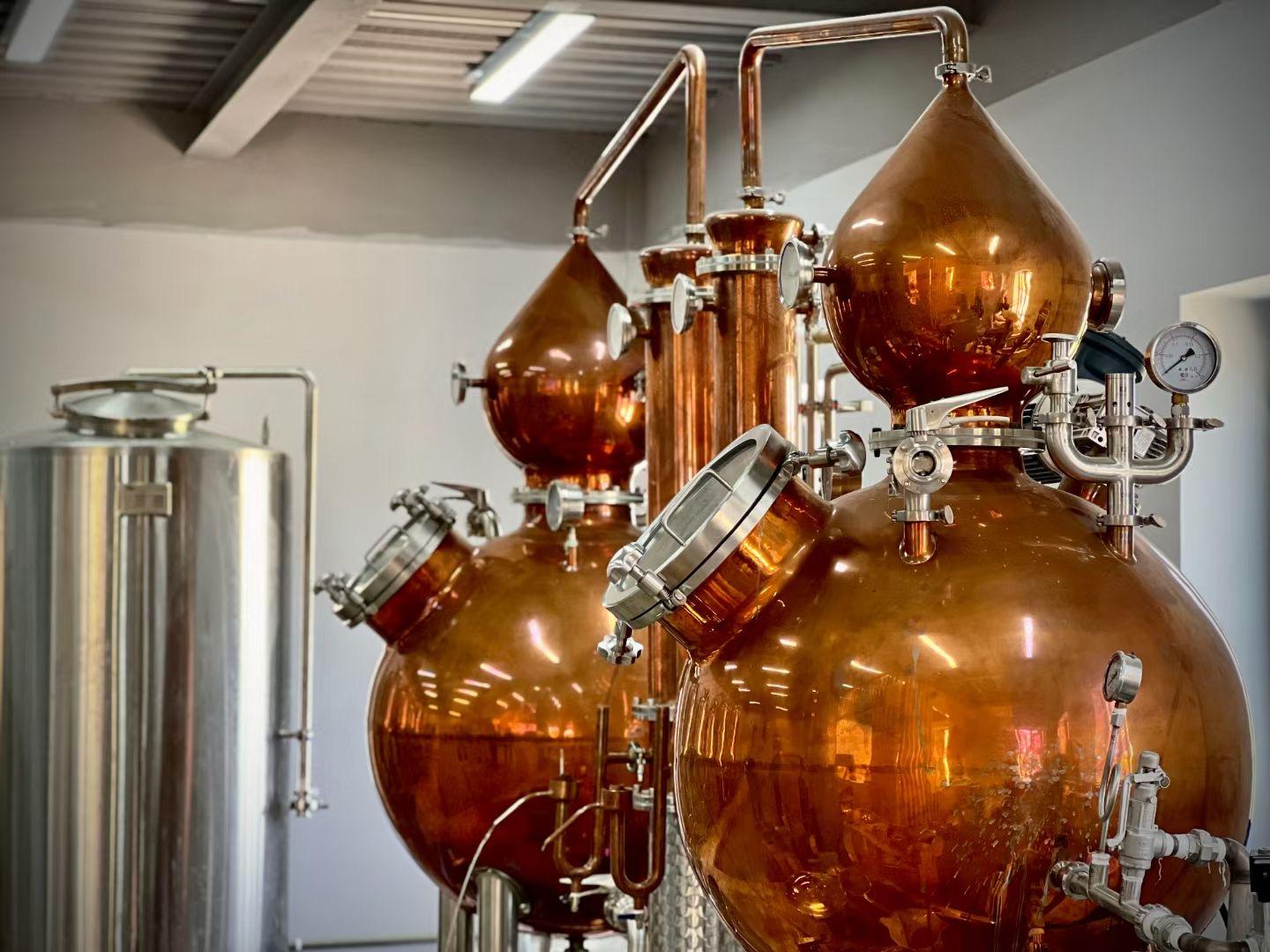
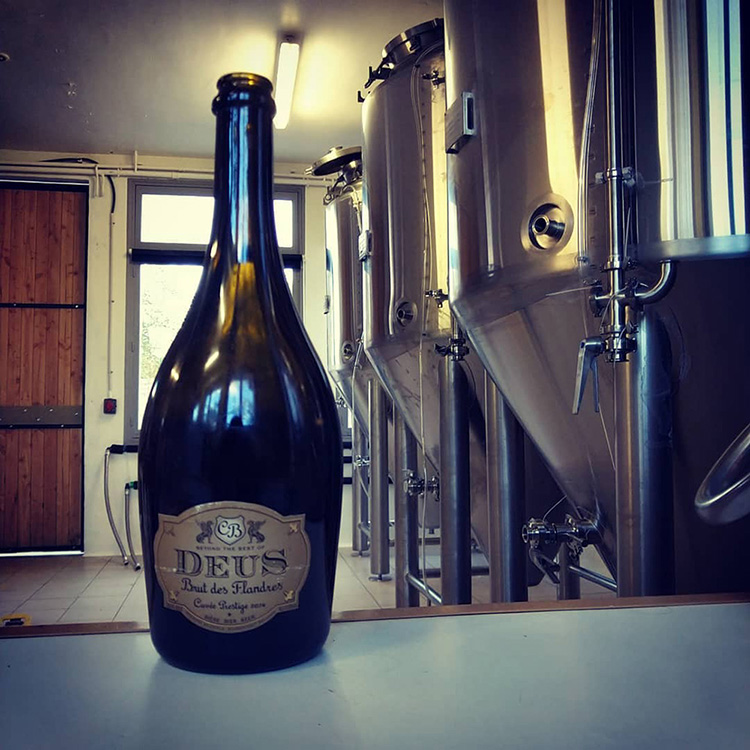
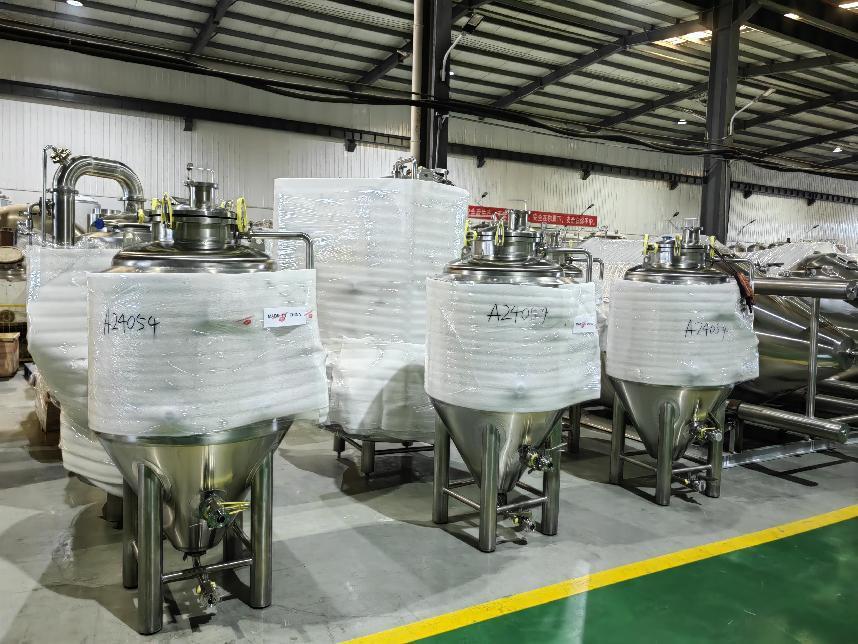
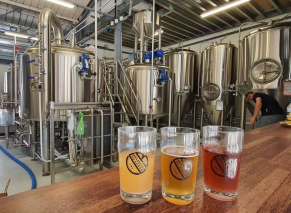
Get A Quote